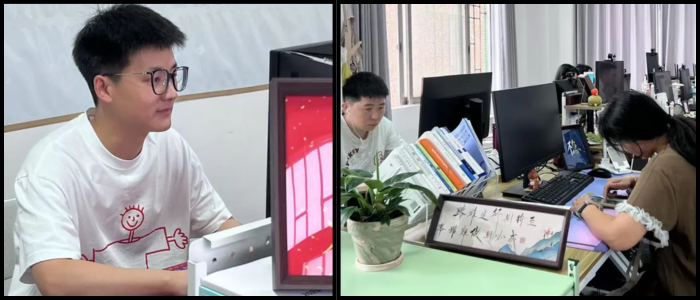Shui Zhou, 30, started paying around $4.20 (£3.10) a day in April to take part in the company and spent leaves of "Pretend To Work Company" at its Dongguan branch, near Hong Kong. It mirrors a working office with computers, internet, meeting rooms and refreshments. He says it increases his motivation and makes him feel like he's part of a "home team" with his five "coworkers." While similar setups can now be found in other cities, including Shanghai, Shenzhen, Nanjing, Wuhan, Chengdu and Kunming—where 30 to 50 yuan daily is typical with meals frequently included—who knows where it will go next?
Social Pressure and Creative Uses
Participants join for reasons like self-discipline, socialising or whatever it may be. Xiaowen Tang, a 23-year-old Chinese student in Shanghai, rented a table and acted as if she were studying to accomplish her university's proof-of-internship demand, which forced her to submit the faked photographs while making money by writing internet novels.
Feiyu, a 30-year-old founder of the Pretend To Work Company in Dongguan, says that roughly 40% of its customers are recent graduates trying to get one over their schools or parents, and the other 60% are more generic. Freelancers include writers and digital nomads. He characterises the service as appealing to "the glory of not being a scumbag" rather than simply desk share.
A Reflection of Economic Strain
Analysts attributed the trend to a lack of employment opportunities and non-directional education. It essentially buys us some time to plan out what we will be doing next, develop a new skill or begin that side hustle.
Now Zhou is working on artificial intelligence skills, as more employers demand abilities with AI. Feiyu believes that his project is not indefinitely profitable, but a social experiment to help some customers turn their displayed employees into real jobs.
Business

China's Jobless Youth Pay to Pretend to Work

Increasing numbers of unemployed, twenty-something Chinese paying companies to let them warm an office chair without a salary — or even a position — at stake. When youth unemployment is more than 14% and many are simply scraping together gigs to keep busy, it's an odd no-brainer over washing dishes at home.















